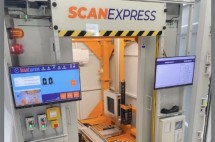BSIMM12: Takeaways and Recommendations to Help Improve Your Software Security Program
By : By: Fred Bals, Senior Technical Writer, Synopsys Software Integrity Group | Tuesday, October 05 2021 - 10:25 IWST

Synopsys Software Integrity Group
INDUSTRY.co.id - BSIMM12 gathers research on software security activities from real-life firms to create a guide that helps you navigate your software security initiative.
The popular business book, “The 7 Habits of Highly Effective People,” explores the theory that successful individuals share common qualities in achieving their goals, and that these qualities can be identified and applied by others.
Applying the premise to software security, the Building Security In Maturity Model project, better known as BSIMM, examines organisations’ software security initiatives, conducts in-person interviews on those organisations’ activities, and publishes its findings annually.
Now in its 12th iteration, the BSIMM report has grown from nine participating companies in 2008 to 128 in 2021, representing nearly 3,000 software security group members and over 6,000 satellite (aka Security Champion) members working with nearly 400,000 developers on over 150,000 applications.
The 2021 edition of the BSIMM report — BSIMM12 — examines anonymised data from the software security activities of 128 organisations across various verticals, including financial services, FinTech, independent software vendors, IoT, healthcare, and technology organisations.
Participating organisations include industry leaders such as Aetna, Bank of America, Citigroup, Freddie Mac, and Johnson & Johnson.
BSIMM12 demonstrates that every business is in the software business
Many of the organisations examined in BSIMM12 identify with traditional verticals, but all recognise that they are fundamentally in the software business. Software plays a leading role in every organisation’s operations.
Delays in software development and deployment affect product release dates, the lifeblood that drives revenue and profit. Businesses that sell software or sell products that include embedded software can’t afford to have security, compliance, or quality issues compromise their products.
Even businesses not directly engaged in selling software or software-driven products are just as dependent on software quality and security. Software drives the administrative systems for their payroll, billing, receivables, sales tracking, and customer records.
Software controls their production, manages inventories, directs warehousing, and runs the distribution systems that keeps a business running. In service industries, software is used to analyse, optimise, model, interact with, and support customers.
The BSIMM12 findings tell us that software risk is business risk, and to effectively manage the second, you have to address the first.
Four top software security trends in BSIMM12
Software security groups are increasingly lending resources, staff, and knowledge to DevOps: There is a shift away from mandating software security behaviours to having security teams forge partnerships with development teams — with an objective of proactively including security efforts into the critical path for software delivery.
Continuous testing is on the rise: BSIMM12 data indicates that more firms are favouring continuous monitoring and reporting rather than using a point-in-time defect discovery approach and are then using security telemetry to drive improvements in software development and governance processes.
Decomposing tests into smaller, timely checks and running these more frequently: The imperative to identify software issues as early as possible remains, driving the need to decompose big testing events into smaller, timely checks.
But there is also a growing realisation among software security groups that sometimes deployment orchestration or the post-deployment environment reflects the earliest, best opportunity for some tests.
Applying policy-as-code, or governance-as-code, is sharply increasing: Governance-as-code moves security practices and adherence with compliance policies away from a manual approach to a more consistent, efficient, repeatable, and automated approach.
BSIMM data collected in earlier years indicated that organisations were beginning the process of replacing manual, human-driven governance activities with automation.
BSIMM12 observations now indicate the sole source of software security standards and policy is increasingly becoming human-readable configuration code or simplified code that conducts vulnerability discovery — the essence of software-defined life cycle governance.
Read Also
Modena Officially Becomes a Member of the UN Global Compact
UAE's Technology Innovation Institute Launches Open-Source "Falcon…
Crystal IS and Asahi Kasei Announce New Record for Single-Chip Device…
Universal Robots reports record revenue despite global uncertainty
New Gigabit Ethernet Switches From Red Lion Simplify Configuration…
Today's Industry

Jumat, 02 Mei 2025 - 10:46 WIB
Binawan and Government Support Indonesian Nurses in Europe through Scholarships
In the midst of the viral #KaburAjaDulu hashtag as a symbol of the young generation's disappointment with domestic working conditions, Binawan responded with real action: dispatching Indonesian…

Jumat, 28 Maret 2025 - 22:21 WIB
SUNeVision Initiates MEGA IDC Phase Two Development
SUNeVision, the technology arm of Sun Hung Kai Properties (SHKP), today announced the commencement of construction for Phase Two of MEGA IDC in Tseung Kwan O. As Hong Kong's largest data centre…

Jumat, 28 Maret 2025 - 22:07 WIB
TDL Records New Revenue Record of IDR 25 Trillion in 2024 Ahead of 50th Anniversary
PT Metrodata Electronics Tbk (MTDL), the largest technology Company with the most complete IT and telecommunications products in Indonesia, managed to record a revenue of IDR 25 trillion in…

Jumat, 28 Maret 2025 - 22:00 WIB
Wireless Logic Selected By Thales As IoT Connectivity Partner
Wireless Logic, a global leader in IoT connectivity solutions has been selected by Thales, a global leader in advanced eSIM technologies, to enable secure, scalable and resilient IoT connectivity…

Jumat, 28 Maret 2025 - 21:53 WIB
Microvista Expands International Presence with Mobile CT System ScanExpress
The German specialist in industrial computed tomography and non-destructive testing, Microvista, announces the European expansion of its innovative mobile CT system, ScanExpress. The system…
















News Comment